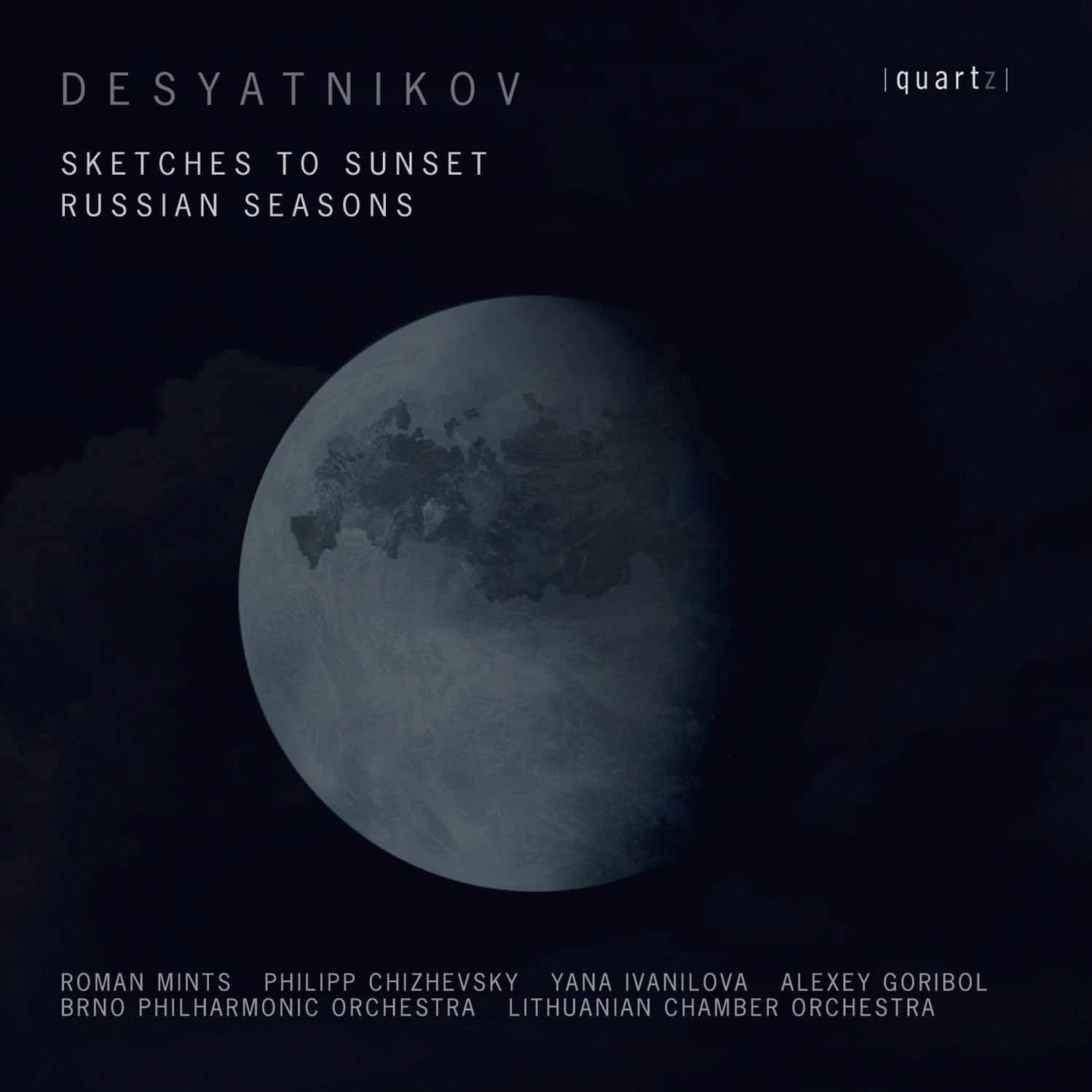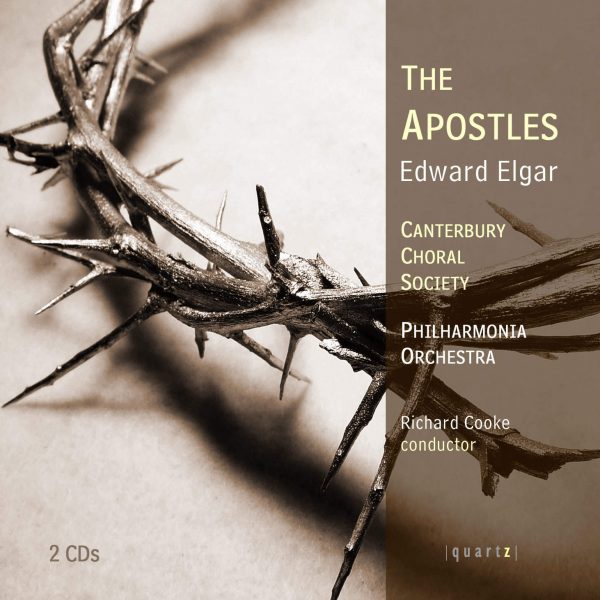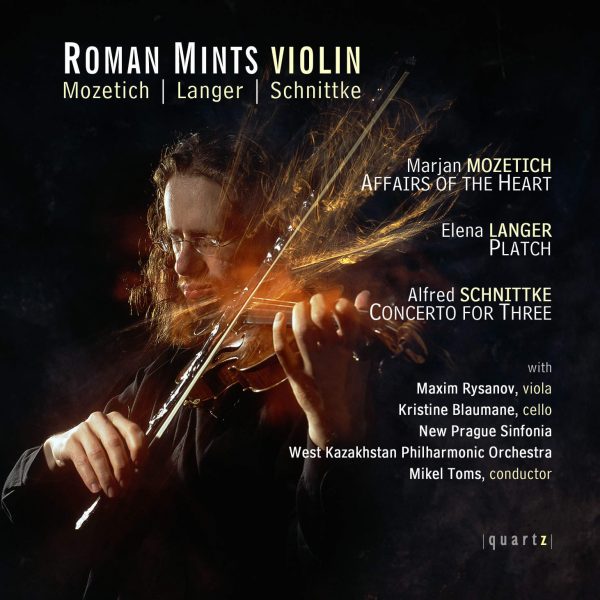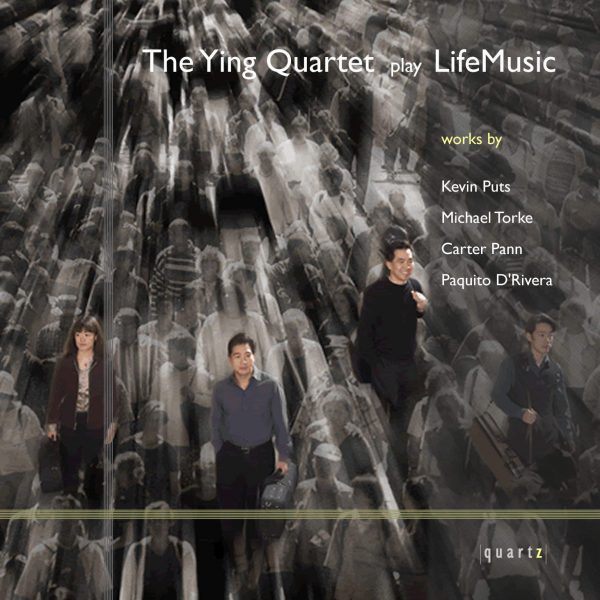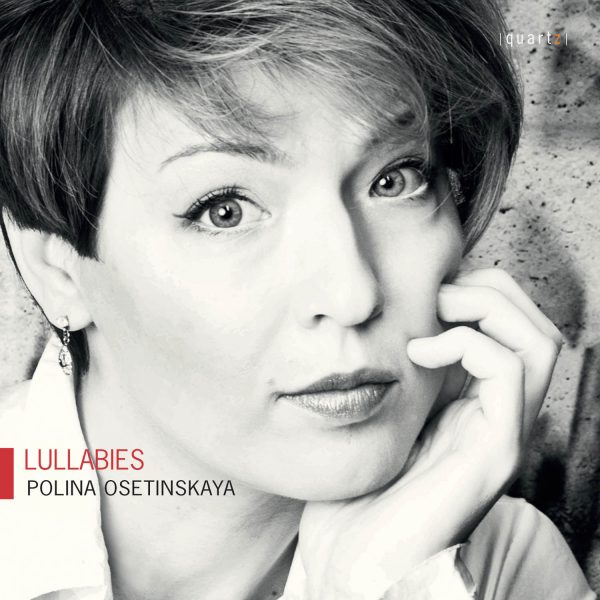Desyatnikov: Sketches to Sunset; Russian Seasons
£5.99 – £11.99
Sketches to Sunset is based on the music written for the film Sunset (after Isaac Babel, directed by Alexander Zeldovich). The story develops in the pre-revolution Odessa and is full of Biblical references, which explains some of the movement titles of the suite. Russian Seasons was written for violinist Gidon Kremer and Kremerata Baltica and dedicated to Alicja Urwyler, who commissioned the work. Russian Seasons is based on folk songs of the Lake District. The first performance was given by Gidon Kremer, Victoria Evtodyeva and Kremerata Baltica, conducted by Andrey Boreyko.
About This Recording
We were rehearsing the programme of an anniversary concert for Desyatnikov at the Bolshoi Theatre. The composer sat in the corner, perusing with curiosity the thick booklet the theatre had published especially for the occasion. The booklet featured essays about Desyatnikov by musicologists, critics, and other composers.
Looking up from his reading, Desyatnikov said, So many new and interesting things! But they are writing about themselves!
This should be enough to instill fear in anyone wishing to write about Desyatnikov, but I have decided that if I write honestly about how I view Desyatnikov and myself, I will not be judged so harshly.
Living in London in the mid nineties, a pianist friend once told me about a certain composer from Petersburg who was a “genius”. He practically rolled billiard balls round the table while he composed, and his music was divinely beautiful. Since I spent most of my time back then in an altered state of consciousness, I failed to remember the man’s name, and was quite skeptical about what I had been told. Divinely beautiful? A genius? How could that be in our day and age, when everything worthwhile had been composed long ago and worn threadbare?
A while later, I got news from Moscow, where I was planning to spend the winter holiday, that pianist Alexei Goribol, about whom I had heard, was looking for a violinist for the Russian premiere of a piece by Desyatnikov. Not just any violinist was wanted, but one who had “a head on his shoulders”. A common friend had recommended me. She told Alexei I was the man he was looking for.
I was sent the sheet music. It did not seem too complicated, although there was a passage that I was not able to pull off at the premiere nor for a long while after.
I arrived in Moscow and got several recordings of Desyatnikov’s music to bring me up to speed. I listened to them. Twenty years have passed since then, and I am still listening. This is one of the amazing qualities of Desyatnikov’s music. It draws you in like a drug, and each time you want a bigger dose. It was around then I realised this was the new model Mozart about whom my London friend had told me.
The piece we played was Sketches to Sunset. I had read Babel’s play Sunset, about the lives of Jews in Odessa in the early twentieth century, and had even seen it performed, but the titles of the movements of this quintet had nothing to do with the Sunset I had read. The music had originally been written as the orchestral score for Alexander Zeldovich’s film Sunset and was chockablock with biblical references – for example, The Death of Absalom and Lot’s Daughter – interspersed with utterly strangely titled movements, at first glance, such as Death in Venice, Take Five and Seven, and Jewish Lambada. It was my first encounter with Desyatnikov’s amazing manner of being serious and wicked at the same time. Laughing through tears, irony, and self-irony were qualities he had inherited from Mahler, but in Desyatnikov’s case they have been manifested without Mahler’s frightening scope.
Leonid, what does it mean, right after the singer sings ‘all bullshitters and bullshitteses,’ that your quotation of composer X starts?
I was trying to get him to come clean about a short vocal cycle.
I just felt like it putting it there, so I did. It works well in that spot, he replied, smiling.
His sparkling intellect lets him set off in a single stroke an explosion of associations and ideas among listeners who are on the same page as he is. For example, Death in Venice, the second movement of Sketches for Sunset, opens with a tango based on the Adagietto movement from Mahler’s Fifth Symphony. Of course, the connoisseur will smile, catching the reference to the Visconti film. This sets off an entire chain reaction of images: death, beauty and its unattainability, decay, and decadence. The instrumentation reinforces the message: the tango, played on the harpsichord, immediately refers us to the tango in Schnittke’s Concerto Grosso, originally scored for the film Agony, which takes place around the same time as Sunset.
All this can occupy only a few seconds of the score, but it is merely the “superficial” layer. Beneath it are the things the irony is meant to conceal, namely, genuine emotion and real beauty. It sometimes happens that the superficial layer is tossed aside, and the composer speaks directly to you. After all the references, quotations, and humorous titles, the finale begins. Straightforwardly entitled Love, it brims over with absolutely pure, poignant beauty; it is first-person music, so to speak but it is only later (maybe even a few years later) you realise it is an reference to Arvo Pärt’s Fratres. As the saying goes, things are not actually the way they are in reality.
Maybe it was a matter of similar backgrounds, despite the difference in our ages, or maybe it was just a coincidence, but I found this way of making a point extremely congenial, and I vigorously promoted Desyatnikov’s work. I am happy I was able to play on the premiere recordings of the chamber and symphonic versions of Sketches for Sunset.
Having composed a great deal of vocal music, Desyatnikov has the amazing capacity to arrive at the essence of the text and pull it to the surface musically. His vocal cycle Liebe und Leben des Dichters first opened my eyes to the uncanny, chilling qualities of the poems of Daniil Kharms and Nikolay Oleynikov. In my favourite piece, The Leaden Echo, based on the poem by Gerard Manley Hopkins.
HOW to kéep – is there ány any, is there none such, nowhere known some,
bow or brooch or braid or brace, láce, latch or catch or key to keep
Back beauty, keep it, beauty, beauty, beauty, … from vanishing away?
This hook is depicted almost literally. An intense sounding major seventh, stretched to a no less intense octave via a glissando, temporarily attains this beauty, but the hook cannot handle the tension and once again slides down to the seventh. Leonid Desyatnikov: The Leaden Echo (QTZ2087) is one of the few recordings on which I have worked to which I enjoy listening again.
Given such an attitude to literary texts, it seems absolutely natural that Desyatnikov would compose more vocal music than instrumental music. Even his two ballets, which he composed relatively recently, contain singing.
So I was not surprised when I heard that Desyatnikov had included a female vocal in the score of a commissioned piece for solo violin and string orchestra. Moreover, the singer’s part is more individualised, unlike the part for the solo violinist, who plays more the role of first among equals, the role of the leader in a string chorus.
The title Russian Seasons immediately brings to mind Diaghilev, Stravinsky, and so on. However, it is still about the seasons – in Russia. The work contains twelve movements, five of them featuring vocals. All the movements are based on Russian folk tunes and texts, and no doubt it is the work of a virtuoso, not in the instrumental sense, but in the sense of a composer at the height of his craft. Desyatnikov shows off his entire palette in these twelve movements: pastiche and allusion (from Du Fay to Piazzolla), different types of polyphony, different musical forms, loads of witty finds, but that is not what matters most, of course. While the instrumental movements feature moments of joy and merriment, utter hopelessness dominates the five vocal movements, in which the composer addresses listeners directly in words. Swaying Song talks about an unloved old husband; Whit Monday Song, about a lover who did not return from a war; Fasting Song, about a soul that has not bee admitted to heaven; and Wedding Song, about a maiden who does not have too long to cry and, consequently, live. (According to popular belief, the cuckoo predicts how many years a person who asks it has left to live). So it transpires that nothing good happens to the heroine at any time of the year, at any time in life.
Who is she? Russian women in general? Russia? The Russian people?
The final movement sums it all up:
Thus in this world,
Oh, in this world,
We want everything.
[…]
But in the other world,
Oh, in the other world,
We want nothing.
All we need is a fathom of earth,
And four boards.
Even the Hallelujah, sung by the orchestra-cum-chorus, does not come across as entirely sincere, but downcast and dejected. We thus come away remembering the fathom of earth and the four boards, not the exhortation Glory to thee, o Lord.
While working on Desyatnikov’s music (this is the third Desyatnikov disc with which I have been involved), I often wonder why there are so many sunsets, so much fading and hopelessness, which are more apparent to Russian listeners than western listeners.
I think I have found the answer. We live in a country where it is always the same time of year, and it is always sunset, but the glow from the sunset sparkles beautifully against the clouds.
—Roman Mints
Track Listing
-
Sketches to Sunset (1992) World Premiere Recording
- Absalom’s Death 2’44
- Death In Venice 2’52
- Jewish Lambada 1’51
- Absalom’s Death 2’38
- Lot’s Daughters 1’03
- Take Five and Seven 1’47
- Tango e-moll 2’40
- Evening 3’58
- Love 2’08 Russian Seasons for Violin, Voice and Strings (2000)
- Easter Greeting Song (Христовская) 2’40
- Swaying Song (Качульная) 2’30
- St. George’s Day Song (Ягорьевская) 4’35
- Cuckoo’s Lament (Плач с кукушкой) 2’03
- Whit Monday Song (Духовская) 4’41
- Stomping Song (Толотная) 3’12
- Fasting Song (Постовая) 4’04
- Autumnal Song (Восенная) 2’16
- Wedding Song (Свадёбская) 3’58
- Сhristmastide Song (Cвятошная) 1’07
- Shrovetide Song (Масленная) 1’39
- Last Song (Последняя) 4’10
Press Reviews
“Like Britten and Schnittke, Leonid Desyatnikov’s film scoring experience has honed his ability to write pithily effective nad evocative music. And like many composers of the late Soviet period (such as Schnittke), his music is full of allusions and quotations… Desyatnikov’s parodies have Stravinsky’s light touch, though with a more mordant edge in Russian Seasons. Violinist Roman Mints has already championed Desyatnikov superbly in the studio, including an earlier recording of Sketches in a chamber-scored version. … The Brno Philharmonic, conducted by Philipp Chizhevsky, plays with tremendous zest and well captues the suite’s often disorienting mix of clowning and poetic reflection, finding a coherent personality in its eclecticism.…” —Daniel Jaffé ⭐️⭐️⭐️⭐️⭐️ BBC Music Magazine
“Violinist Roman Mints, excellent throughout, applies more elbow grease to the hurdy-gurdy-style imitations in ‘Easter Greeting Song’, while Yana Ivanilova’s direct, no-frills vocal is less operatically staged than Korpacheva’s. … A long line of Russian composers have juxtaposed high with low, poignancy with parody over the years, of course, from Shostakovich to Alexander Raskatov; but Desyatnikov’s evocative synthesis surely makes him one of its most gifted proponents.” —Gramophone Magazine
“The music of Destyatnikov has imagination, warmth and modern tonal folk fire. … “Russian Seasons” [has] some moments that have a genetic affinity with the neo-classic-folk period of Stravinsky, especially in its modular rhythmic liveliness and thematic organicism. But then you discover an overall originality that transcends influence yet remains very much Russian. It is a work that captivates and enchants in the most worthy ways. “Sketches to Sunset” … [is a] primal sort of experience of the haze of time seems palpable in the thematic sequencing. One is left holding the air of the present as the spell the music casts comes to a close. Desyatnikov has an inimitably tabula rasa way, yet there is strong tradition paradoxically present, too. A definite joy to immerse oneself in!” –Classical Modern Music Review
“[Sketches to Sunset]’s extraordinarily vivid, entertaining music, showcasing this composer’s ability to be “serious and wicked at the same time”. So a restrained, chilly opening suddenly melts into a short tango called “Death in Venice”, opening with the theme from Mahler’s Adagietto blasted out on solo trombone. Much of what follows is incredibly entertaining and will amuse anyone who’s ever smiled at Shostakovich’s version of Tea for Two. Desyatnikov can also plumb the depths too; movements like “Absalom’s Death” are unbearably beautiful. A further reason to love this work is the inclusion of a flexatone in the penultimate section, and listen out for the Arvo Pärt references in the closing minutes. I loved this piece. You will too, and it’s terrifically performed by Mints, pianist Alexey Goribol and Philip Chizhevsky’s responsive, well-recorded Brno Philharmonic Orchestra. … [In Russian Season] Ivanilova is superb, and Mints’s playing is spiky and seductive by turns. Start your Desyatnikov collection here.” —Graham Rickson, The Arts Desk
“Based just on this introduction to Leonid’s music I would certainly like to hear more. … This music stands well as an orchestral suite, without any imagery, for it is very picturesque on its own. … The fairly substantial Russian Sketches for solo violin, voice and strings was written for Gidon Kremer and his Kremerata Baltica. The words and some of the music are taken from Russian folk tunes. Desyatnikov’s treatments are virtuosic in places and completely interesting throughout. … The performances here are all quite good. Special kudos to both violinist Roman Mints and singer Yana Ivanilova for being able to sound highly skilled and, yet, ‘earthy’ and folk-like when called for. This is a pretty impressive introduction to the music of Leonid Desyatnikov. I certainly had never heard of him before but I intend to find out more.” —Daniel Coombs, Audiophile Audition
“As already stated, the music is great fun… Both orchestras involved play beautifully. Conductor Philipp Chizhevsky keeps the essence of the music throughout, while the soloists do a marvellous job in bringing this composer’s music thrillingly to life. Roman Mints is obviously worth hearing in whatever solo role he takes. Yana Ivanilova is unsurprisingly highly sought-after, and Alexey Goribol does a great job in the first of the two works.” —Steve Arloff, MusicWeb International
